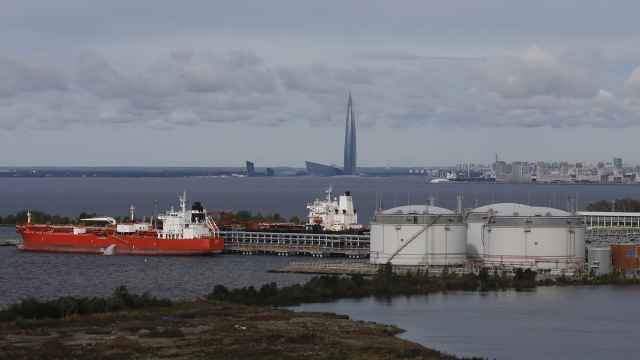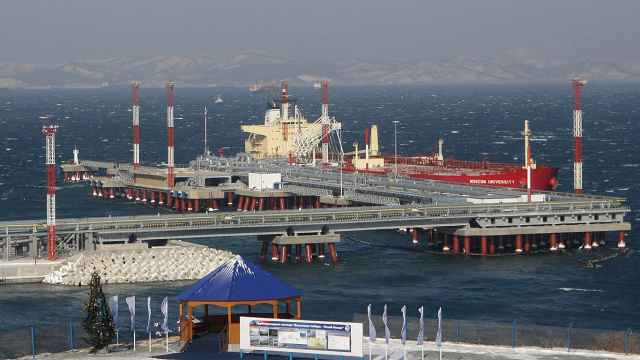Russian oil prices have slid sharply as refiners in India and China pulled back from purchases ahead of a U.S. sanctions deadline targeting state-controlled producers Rosneft and Lukoil.
The price of Urals crude, Russia’s main export blend, fell to $36.61 per barrel at the end of last week for cargoes loaded from Novorossiysk, Bloomberg reported Monday, citing Argus Media data.
The discount on Urals versus North Sea benchmark Brent widened to $23.51 per barrel, the largest since March 2023.
Urals typically traded at a $12-13 discount before the latest U.S. measures were announced. The gap has since nearly doubled and is closing in on the early-2023 record of $40.
The selloff has intensified as the Nov. 21 deadline approaches, by which all transactions involving Rosneft and Lukoil must be wound down.
Several major Indian refiners — Reliance Industries, Bharat Petroleum, Hindustan Petroleum, Mangalore Refinery and Petrochemicals and HPCL-Mittal Energy — have already halted direct purchases from the two companies. Together, they previously bought around 1 million barrels per day of Russian crude.
Chinese state-owned refiners Sinopec and PetroChina, along with smaller private plants, have also suspended direct buying.
The “buyer strike” has affected nearly 45% of Russian oil exports to China, according to figures from Rystad Energy cited by Bloomberg earlier this month.
The sudden drop in demand has left Russian suppliers holding growing volumes at sea.
JPMorgan estimates around one-third of Russia’s seaborne exports, roughly 1.4 million barrels per day, are now sitting on tankers being used as floating storage.
“Russia's oil exports are entering a new phase of disruption as sanctions targeting Rosneft and Lukoil are set to take effect, prompting its two largest customers — India and China — to sharply reduce their December purchases,” JPMorgan analysts wrote.
The Kremlin is bracing for another hit to its budget revenues which have already fallen more than 20% this year, Bloomberg reported in September.
Rosneft and Lukoil account for about half of Russia’s crude exports at 2.2 million barrels per day. When including Surgutneftegaz and Gazprom Neft, already under U.S. blocking sanctions, around 70% of Russia’s export volumes are now affected.
A Message from The Moscow Times:
Dear readers,
We are facing unprecedented challenges. Russia's Prosecutor General's Office has designated The Moscow Times as an "undesirable" organization, criminalizing our work and putting our staff at risk of prosecution. This follows our earlier unjust labeling as a "foreign agent."
These actions are direct attempts to silence independent journalism in Russia. The authorities claim our work "discredits the decisions of the Russian leadership." We see things differently: we strive to provide accurate, unbiased reporting on Russia.
We, the journalists of The Moscow Times, refuse to be silenced. But to continue our work, we need your help.
Your support, no matter how small, makes a world of difference. If you can, please support us monthly starting from just $2. It's quick to set up, and every contribution makes a significant impact.
By supporting The Moscow Times, you're defending open, independent journalism in the face of repression. Thank you for standing with us.
Remind me later.






